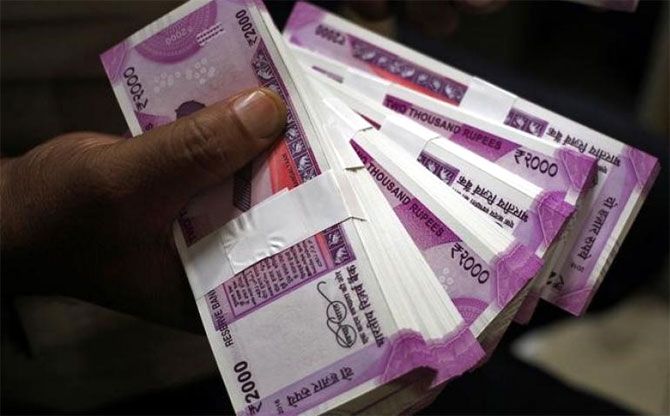Swiss brokerage UBS joins European banking peer HSBC in shutting down its offshore derivative business.

Tighter rules and dwindling flows are taking a toll on issuers of participatory notes (P-notes) in the country, with top players heading towards the exit.
According to sources, Swiss bank UBS has stopped issuing offshore derivative instruments (ODIs) or P-notes based on domestic securities from January 1. Foreign investors typically buy P-notes. UBS joins its European peer HSBC, which had shut P-note operations last year.
Both brokerages were the among top 10 P-notes issuers in the country. Industry observers say more players are feeling the heat of change in regulations, such as increased disclosure norms and change in double taxation avoidance agreements (DTAAs) with Mauritius and Singapore.
P-notes are offshore derivative instruments that have Indian stocks as their underlying assets. They allow foreign investors to buy stocks listed on Indian exchanges.
UBS is said to have informed clients of its decision. However, the Swiss brokerage is expected to continue services for its existing clients for the next one year. UBS declined to comment for the story.
"P-notes issuance is no longer a lucrative business as the volumes are decreasing rapidly and clients now prefer to take direct participation route. Further, new regulations have also increased compliance burden on ODI issuers. Hence, it makes sense to exit such business," said a source.
The trouble started after Securities and Exchange Board of India (Sebi) tightened Know Your Customer (KYC) norms, realigning them with KYC norms for onshore investors.
The capital markets regulator also issued curbs on transferability and prescribed stricter reporting for P-notes issuers and end-users. It also asked issuers to follow domestic anti-money laundering laws.
"Recent changes to regulations have shot up compliance costs for P-note issuers. It has now become less viable to be an intermediary in the business as it is difficult to comply with new regulations and, in case of violations, the issuer might be pulled up," said Sandeep Parekh, founder, Finsec Law Advisors.
Changes to double taxation avoidance agreements (DTAA) with Mauritius and Singapore have served up a double whammy for P-notes business.
Going by the revised DTAA, short-term profits made on all investments coming from Mauritius would be taxed. Earlier, short-term profits were exempt from such taxes.
However, some experts feel tighter regulations are necessary for curbing misuse of the P-note instrument for tax evasion and for cleaning up dubious transactions.
"Though new rules have resulted in increasing costs of issuing and maintaining P-notes, the disclosures and spotlight on these are appreciated. I don't see these new norms as a reason for any exodus of investments from India," said Sumit Agrawal, founder, Suvan Law Advisors.
Earlier, P-notes were a popular investment route for offshore investors wanting to take exposure to the Indian market without registering with the regulator.
ODIs or P-notes, which have Indian stocks as underlying securities, are issued by foreign portfolio investors (FPIs) registered with the regulator.
The share of P-notes in overall foreign portfolio investment (FPI) assets under management has dropped to 7.5 per cent from 10.5 per cent at the start of 2016.
For the first time in many years, P-note assets dropped below Rs 2 lakh crore in November last year. Total FPI assets currently are around Rs 24 lakh crore. In 2007, P-notes accounted for nearly half of the FPI assets.
Photograph: Reuters






